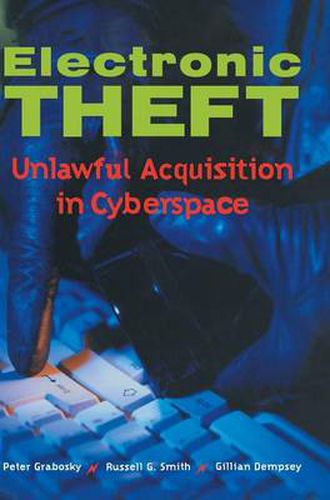Readings Newsletter
Become a Readings Member to make your shopping experience even easier.
Sign in or sign up for free!
You’re not far away from qualifying for FREE standard shipping within Australia
You’ve qualified for FREE standard shipping within Australia
The cart is loading…






The convergence of communications and computing has begun to transform Western industrial societies. Increasing connectivity is accompanied by unprecedented opportunities for crimes of acquisition. The fundamental principle of criminology is that crime follows opportunity, and opportunities for theft abound in the digital age. Electronic Theft names, describes and analyses the range of electronic and digital theft, and constitutes the first major survey of the field. The authors cover a broad list of electronic misdemeanours, including extortion, defrauding governments, telephone fraud, securities fraud, deceptive advertising and other business practices, industrial espionage, intellectual property crimes, and the misappropriation and unauthorised use of personal information. They have been able to capture impressively large amounts of data internationally from both scholarly and professional sources. The book poses and attempts to answer some pressing questions to do with national sovereignty and enforceability of laws.
$9.00 standard shipping within Australia
FREE standard shipping within Australia for orders over $100.00
Express & International shipping calculated at checkout
The convergence of communications and computing has begun to transform Western industrial societies. Increasing connectivity is accompanied by unprecedented opportunities for crimes of acquisition. The fundamental principle of criminology is that crime follows opportunity, and opportunities for theft abound in the digital age. Electronic Theft names, describes and analyses the range of electronic and digital theft, and constitutes the first major survey of the field. The authors cover a broad list of electronic misdemeanours, including extortion, defrauding governments, telephone fraud, securities fraud, deceptive advertising and other business practices, industrial espionage, intellectual property crimes, and the misappropriation and unauthorised use of personal information. They have been able to capture impressively large amounts of data internationally from both scholarly and professional sources. The book poses and attempts to answer some pressing questions to do with national sovereignty and enforceability of laws.